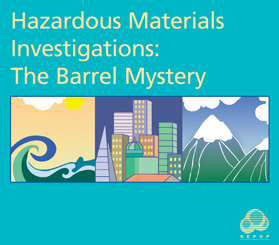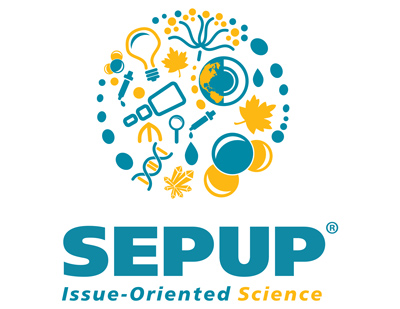Hazardous Materials Investigations: The Barrel Mystery

What happens when unidentified, hazardous wastes are left abandoned? This module focuses on the physical and chemical properties of substances. Students explore the contents of a barrel of simulated hazardous waste as they learn to physically separate, test, and identify substances in a mixture. They investigate different types of chemical hazards and describe hazardous substances in the home. Students evaluate the trade-offs involved in the transportation of hazardous materials as they create a plan for transporting large amounts of hazardous waste from one area to another. Students are assessed on their ability to analyze data.
Each module includes a Teacher’s Guide containing reproducible student pages and a kit containing the equipment required to conduct the activities with five classes of 32 students. The Teacher’s Guide provides specific strategies to facilitate and assess student learning.
Overview
Shown below is the table of contents for the teacher’s guide, which contains reproducible student pages.
Introduction
Module at a Glance
Guide to the Module
Activity 1: Exploring Hazardous Materials
Student Investigation: What’s in the Barrel?
Activity 2: Identifying Types of Hazards
Student Investigation: HAZMAT Training
Activity 3: Separating a Mixture
Student Investigation: Making a Plan
Activity 4: Identifying Solids
Student Investigation: So Many Solids
Activity 5: Identifying Liquids
Student Investigation: Looking at Liquids
Activity 6: Labeling Hazardous Materials
Student Investigation: DOT Placards
Activity 7: Transporting Hazardous Materials
Student Investigation: Planes, Trains, and More
Activity 8: Evaluating Evidence
Student Investigation: The Right Route
Appendix A: Materials
Appendix B: Background
Appendix C: Assessment
Appendix D: Glossary

